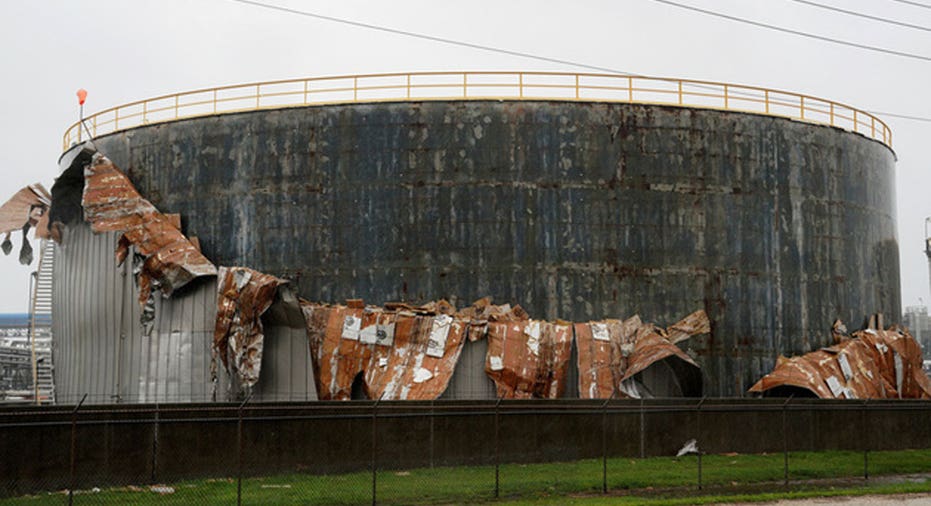U.S. gasoline prices notch first slide since Harvey, oil falls

Benchmark U.S. gasoline prices slid for the first day since Hurricane Harvey struck the U.S. oil industry heartland, as some refineries restarted operations, but oil prices slid further.
Harvey, downgraded to a tropical storm and losing steam as it moved inland, killed more than 40 people and brought record flooding that shut at least 4.4 million barrels per day (bpd) of refining capacity.
Closure of roughly a quarter of the U.S. refining industry sparked fears of fuel shortages before the Labor Day weekend and cast doubts on refinery demand for crude. This widened the crack spread, the difference between the prices of U.S. gasoline and crude oil.
On Thursday, U.S. gasoline hit a two-year high above $2 a gallon. On Friday, as two refineries began to restart and some ports reopened, gasoline futures fell 3 percent and the crack spread <RBc1-CLc1> fell more than 8 percent.
Brent crude for November was 36 cents lower at $52.50 a barrel by 12:53 EDT (1653 GMT). The Brent contract for October, which expired on Thursday, closed up $1.52 at $52.38.
U.S. crude was 20 cents lower at $47.03 a barrel, headed for a weekly decline of roughly 1.7 percent.
Both contracts had bounced off session lows but analysts said prices would seesaw until there the market got a clearer outlook for the refinery industry.
"We're continuing to assess the refining sector and its ability to come back from Harvey," said John Kilduff, partner at energy hedge fund Again Capital LLC. "The good news for consumers is that it seems some of the units are in the process of getting back in operation."
Marathon Petroleum Corp's Galveston Bay Refinery in Texas City, Texas, had raised production to 45 percent of its 459,000 barrel per day capacity, sources told Reuters on Friday. Citgo Petroleum Corp said it was moving to restart its 157,500-barrel-per-day (bpd) refinery in Corpus Christi, Texas.
The U.S. government tapped the Strategic Petroleum Reserve for the first time in five years, releasing 1 million barrels of crude to a working refinery in Louisiana. An adviser to President Donald Trump told a White House briefing more oil could be released.
"We would be very comfortable tapping into that," homeland security adviser Tom Bossert told reporters.
U.S. crude oil stocks fell sharply last week as refineries raised output with the approach of Harvey, the Energy Information Administration said.
The oil market outside the United States remains well supplied with ample production by the Organization of the Petroleum Exporting Countries. However, OPEC oil output slipped in August by 170,000 bpd from a 2017 high, a Reuters survey found.
(By Libby George; Additional reporting by Christopher Johnson in London and Aaron Sheldrick in Tokyo; Editing by Dale Hudson and David Gregorio)



















